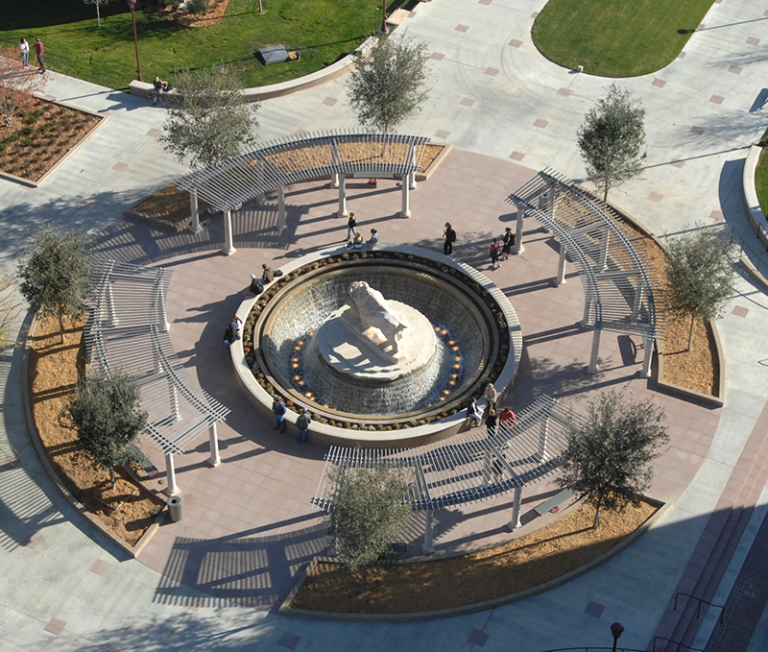
Originally published in the Dallas Morning News on October 11, 2025.
Universities once were built as places to pursue truth in its fullness. The medieval universitas joined science, philosophy and theology in one great search. Today, the vision of pursuing truth is fading. Too many campuses have become what author Os Guinness calls “worlds without windows”—closed systems that recognize only the material, never the transcendent. But there’s still time to open the windows.
Higher education produces more research than ever. Labs hum, data flows and papers pile up. Yet universities often mistake technical mastery for wisdom. Knowing how something works, whether in genetics, artificial intelligence or economics, is not the same as knowing what should be done and why.
Ethical reasoning requires more than measurement. It requires values and truths that stand outside the scientific method. By dismissing metaphysical questions as “subjective,” universities graduate capable technicians who are morally unformed citizens.
By denying anything beyond the physical, universities impoverish their students and weaken the society that depends on them. Knowledge without wisdom may be many things, but it is not insightful.
In The Abolition of Man, C.S. Lewis warned that this kind of education risks creating “men without chests”—clever minds and busy hands but hollow hearts. Today’s headlines about powerful technologies and fragile societies suggest he was right.
A worldview without windows reduces people to data points. Students are taught to see themselves as neurons firing or consumers buying, seldom as souls seeking meaning. The values universities claim to champion—human rights, equality and dignity—rest on metaphysical ground. Being human is not something for which an apology is owed; rather, it should be treasured as an identity.
The Civil Rights Movement had power because it proclaimed that every human being is an image bearer of God with irreducible worth. Strip away the transcendent and even justice becomes negotiable.
Philosopher Charles Taylor calls our age an “immanent frame,” a cultural box that excludes transcendence by default. Many students who enter college are already caught in the box. Instead of showing them a way out, universities reinforce the walls, board up the windows. That isn’t neutrality. It’s bias.
By refusing to let students ask transcendent questions, higher education narrows intellectual freedom instead of expanding it. A university without windows is more a hall of mirrors than a house of learning.
The consequences are visible in both student and civic life. Depression and anxiety are surging on campuses and off. Graduates leave with marketable skills but little sense of purpose.
I see it at West Texas A&M University where I serve as president. The National Survey of Student Engagement reports that 18% of freshmen and 15% of seniors at WTAMU have a disability, compared with 20% of freshmen and 21% of seniors nationwide. Among those reporting disabilities at WTAMU, 75% of freshmen and 62% of seniors reported a mental health or developmental condition. Detachment and isolation are key drivers of such conditions. WTAMU’s incidences are lower than national averages but are concerning, nonetheless.
The intellectual straitjackets of –ists and –isms that now permeate academic discourse kill both thoughtful reflection and human purpose. When universities avoid transcendence, they fail to provide students the resources that anchor meaning, community and mental health. Instead of preparing leaders, a windowless university risks producing specialists adrift in a secular sea.
Universities are not seminaries, nor should they be. Transcendence does not reject science; it complements it and seeks high purpose and common ground. The physical sciences tell us much about how the world works, but they cannot tell us why it matters.
In The Idea of a University, Cardinal John Henry Newman championed liberal studies, writing that universities exist to cultivate and build the intellect, not train people for jobs. He did not denigrate vocational training but believed the university’s purpose is to form the mind to think clearly, judge fairly and seek truth. Newman labeled these actions an “enlargement of the mind.”
Many technical professions and careers have reached a point where specialized academic training is essential. That’s a centuries-long trend. Back in 1776, for example, only 1.5% of the approximate 3,500 physicians in our fledgling country had the formal educational experience that would align with what the American Medical Association would codify decades later. Even during Newman’s life, the number of physicians climbed, but many were still not formally trained. It wasn’t until 1910, in a document called the Flexner Report, that the AMA would call for educational standards for all physicians.
When Newman argued in 1852 for the importance of liberal arts education in “whole person formation”—the formation of one’s intellectual, moral, spiritual and social personhood—he would have had little idea that technical and professional fields would become so pervasive in society.
Martin Luther and other Christian reformers centuries before Newman emphasized that ordinary work—including public service, political participation and community life—is part of one’s vocation, from the Latin vocatio.
Being an engaged citizen can thus be seen as answering God’s call to serve neighbor and society. Newman’s point was that a liberal arts education prepares a person not for one job but for any vocation.
That becomes more crucial every day. Engaged citizenship finds its footing at the intersection of life experience, study and vocation. The fundamentals of philosophy, theology, fine arts, literature and education are the substance of a civil society and a republican form of government.
Windows in a university are necessary so that universities can consider the fullness of the human experience. Seeing beyond the technocratic bubble forces us to recover intellectual honesty. Opening windows allows and encourages students to ask the most significant questions and take the answers seriously, whether they draw on faith or reason.
When conceiving the University of Virginia in 1819, Thomas Jefferson recognized that liberal and practical education could and should be fused. Jefferson balanced liberal studies of philosophy, ethics and history with science, math and engineering to cultivate virtuous and rational citizens.
The Continental Congress wrote, “Knowledge, being necessary to good government and the happiness of mankind, schools and the means of education shall forever be encouraged.” Almost 100 years later, the Morrill Act—signed into law by President Abraham Lincoln in 1862 and expanded in 1890—established land-grant universities in the United States. The act promoted, among other things, “the liberal and practical education of the industrial classes in the several pursuits and professions in life.” The vision was a marriage of liberal and practical learning necessary for the needs of a changing nation. The transcendent duality is the American dream, not an either-or position.
Newman, Jefferson and Lincoln understood both liberal and practical education are required—and both are achievable. Informed university leaders should insist upon both intellectual and moral development to prepare graduates for vocations that add value, in all its forms, for the 21st-century marketplace. To do less is a failure of universities and society.
A university cut off from transcendence will continue producing discoveries but not direction, information but not wisdom. Windowless universities will train workers but not leaders. Such universities will leave a society already struggling for meaning rudderless and adrift.
In his application to Harvard in 1935, John F. Kennedy wrote, “The reasons that I have for wishing to go to Harvard are several. I feel that Harvard can give me a better background and a better liberal education than any other university.”
If higher education wants to recover its soul and help culture recover its bearings, universities must learn again how to look beyond the walls of the lab and the lecture hall. It is time for universities to uncover the windows. Let in the fresh air and the bright light of values-based liberal education, for the benefit of all.
Walter V. Wendler is the President of West Texas A&M University. His weekly columns, with hyperlinks, are available at https://walterwendler.com/.




